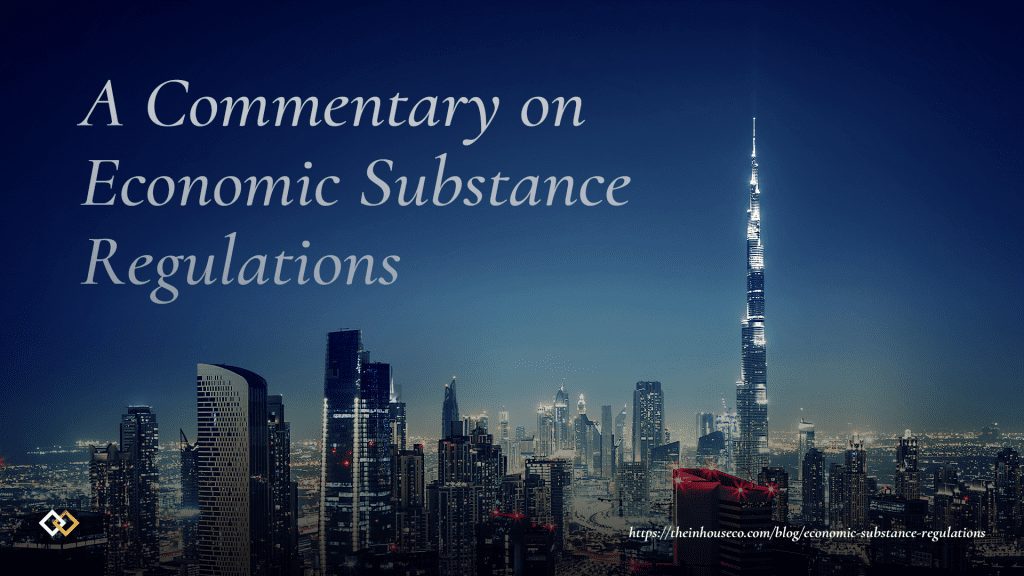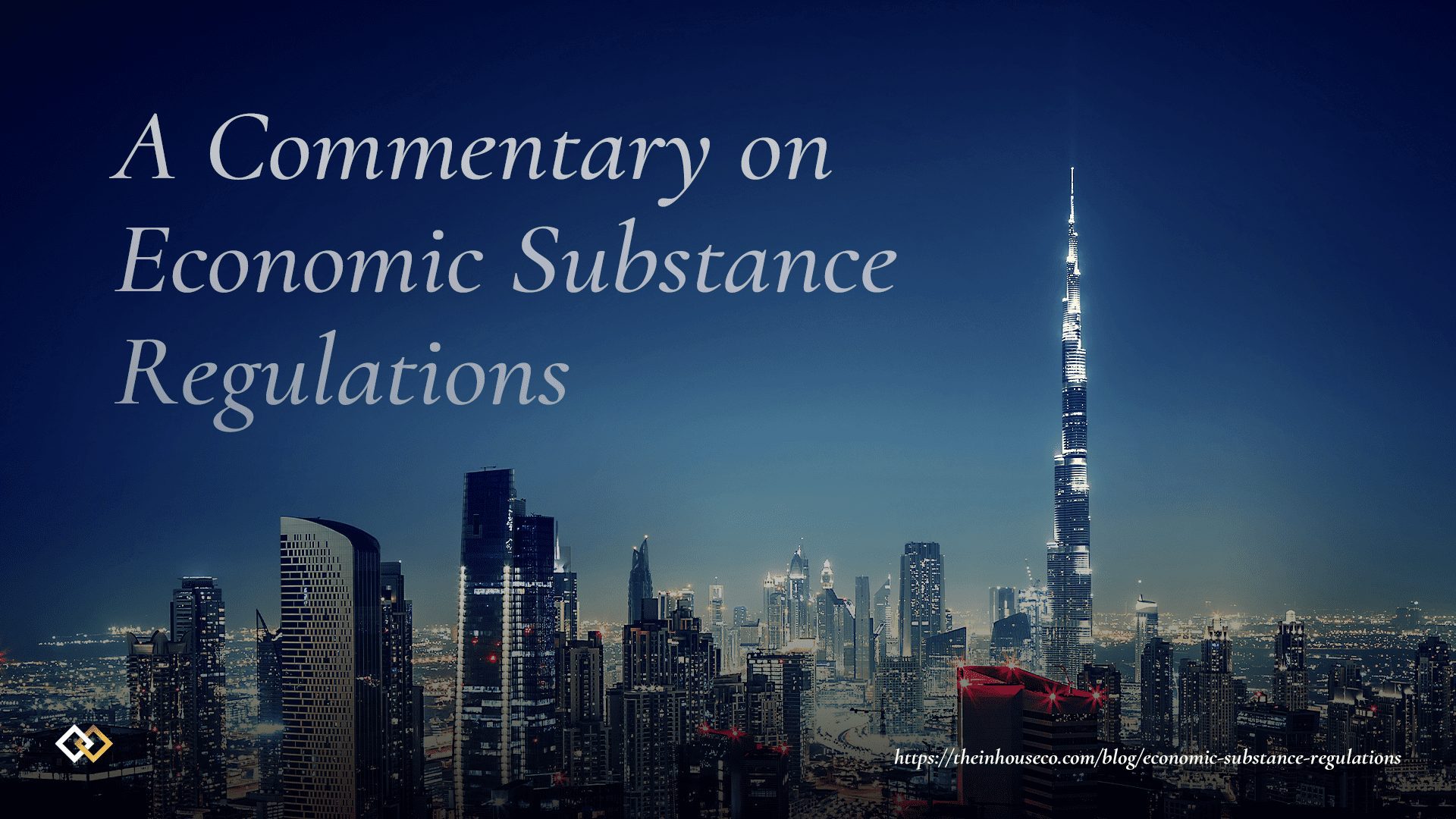“Satisfying” the Economic Substance Regulations (ESR) imposed by the UAE Government seems to be the buzz word of the month as the deadlines for submission of the ESR forms (which have been repeatedly extended) come closer. Most authorities have set the deadline for 30 June 2020 but some are earlier therefore companies will need to check with their relevant authority.
For those companies in the UAE who have not incorporated here to evade any foreign tax regulations (which is the large majority) it does not pose as anything other than a formality. However, the real targets are those companies who undertake a Relevant Activity (banking, insurance, investment fund management, headquarters business, lease financing, shipping, intellectual property, distribution and service and holding companies) and who use the UAE tax framework to their advantage by artificially attracting profits. It is the rising numbers of these companies which have put the UAE on the EU blacklist of non-cooperative jurisdictions for tax purposes.

Through the examination of the core income generating activities taking place in the UAE and the corresponding adequacy of employees, expenditure and premises (satisfaction of economic substance) in deciding whether a company is in compliance with the ESR, the UAE Government can identify those companies which it is targeting. It would seem at first glance that the government is examining those companies who are part of a foreign multinational group headquartered elsewhere but this is not the case as even those whose headquarters are in the UAE and who transact with foreign group companies are under the spotlight.
‘Adequacy’ is another buzzword leaving companies wondering how the Regulatory Authorities would calculate how employees, expenditure and premises would be deemed to be adequate for the level of activity undertaken. This would seem to be a minefield and decisions left to the pragmatism of the authorities suggest ensuing battles coming up. For instance, to satisfy the employee test, those employees who perform the core income generating activities would need to be resident in the UAE or would need to perform these activities whilst present in the UAE (and under the direction of the company and whose costs must be borne by the company). In the digital age and the age of frequent travel across borders and time zones, international outsourcing has become an economic inevitability and a mainstay with the need for constant physical presence becoming a rather outdated concept. This would need to be recognised and calculations adjusted accordingly.
In the digital age and the age of frequent travel across borders and time zones, international outsourcing has become an economic inevitability and a mainstay with the need for constant physical presence becoming a rather outdated concept.
Obviously, there will be penalties if companies fail to provide accurate or complete information or if they fail to demonstrate economic substance (up to AED 50,000). Repeated failure to satisfy the requirements could potentially lead to fines of AED 300,000 and eventual suspension, withdrawal or non-renewal of licences.
It must be pointed out here that this is not an Organisation for Economic Cooperation and Development (OECD) requirement solely for the UAE Government but is a worldwide one with other similar jurisdictions being on the blacklist. The strict adherence to the requirements is a sign of the UAE’s commitment to bringing the perception of the country into the ranks of the developed nations and which can only have an eventual positive effect on the UAE economy.



















